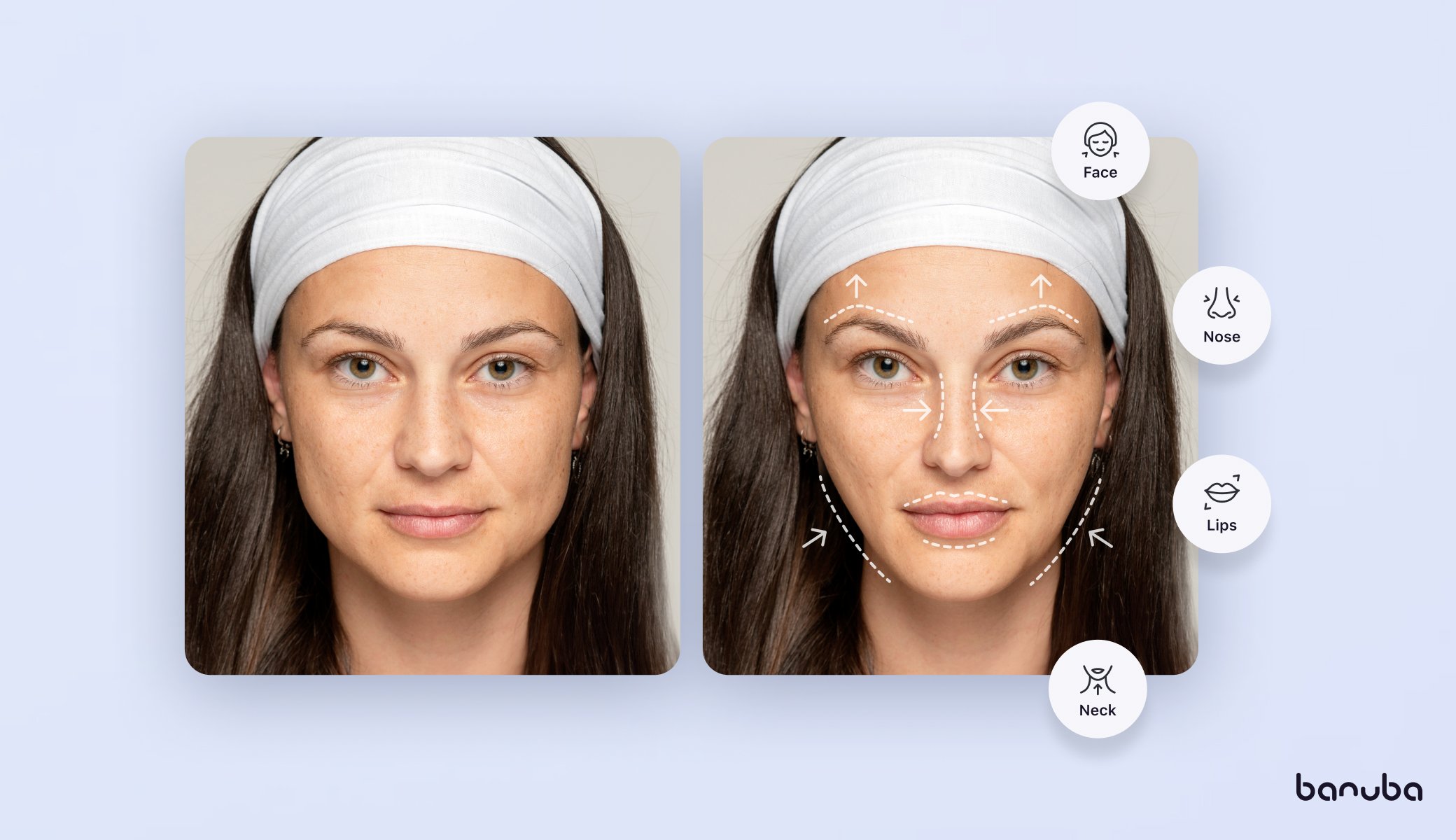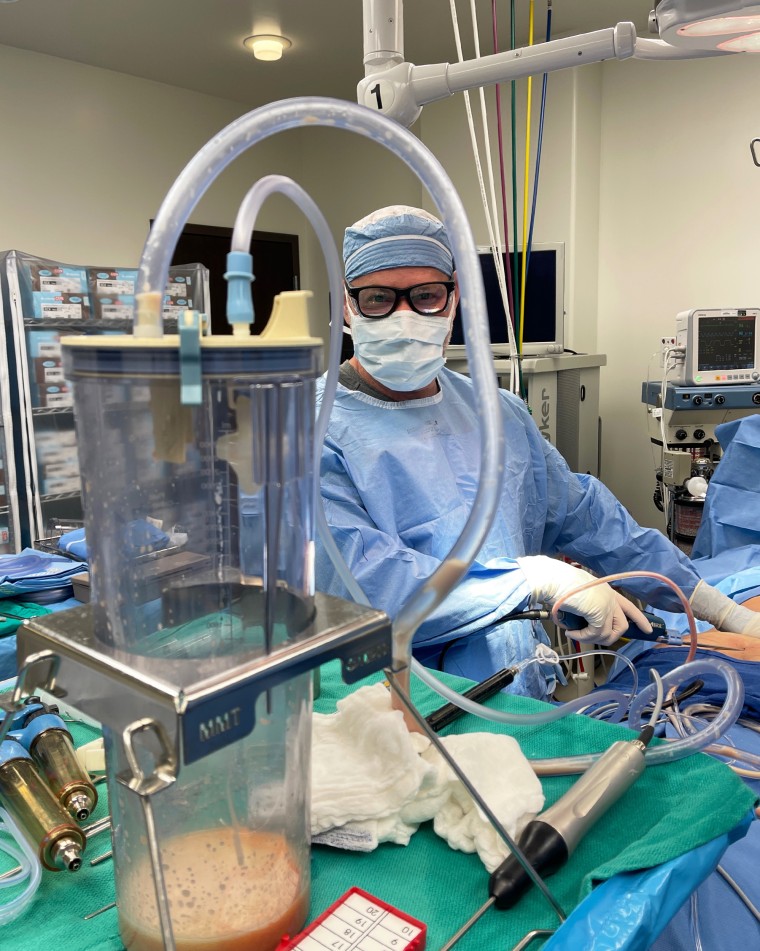Checking Out the Emotional and Social Factors That Drive Individuals to Take Into Consideration Plastic Surgery as a Way of Renovation
The decision to pursue plastic surgery frequently expands past simple visual appeals, linking with social and emotional characteristics that merit thorough examination. Aspects such as self-esteem, prevalent social appeal criteria, and the pervasive influence of social media sites assemble to shape specific inspirations for surgical enhancement. As these impacts end up being significantly famous, understanding the underlying cultural and psychological contexts is vital. What continues to be to be checked out is the extensive impact these elements have not just on individuality yet likewise on wider social standards and worths bordering charm and approval.
The Function of Self-worth
Self-confidence dramatically influences a person's decision to go after cosmetic surgery. People with low self-worth commonly view themselves in an unfavorable light, causing feelings of inadequacy concerning their physical appearance. This adverse self-perception can drive them to look for medical interventions as an approach of boosting their self-image. The desire for improvement in one's appearance is often connected to an idea that such adjustments will certainly boost their total self-respect and self-confidence.
:max_bytes(150000):strip_icc():focal(745x123:747x125)/botched-plastic-surgery-drunk-surgeon-tout-010424-1d80c7b734e942eb8f0953dc13be8ee0.jpg)
Inevitably, the role of self-esteem in the decision-making procedure relating to plastic surgery highlights the complicated interaction between body image, personal contentment, and mental wellness. Comprehending this relationship is essential for healthcare professionals to make certain that clients are making notified decisions rooted in practical expectations and psychological health.
Social Elegance Criteria
Influenced by prevalent media representations and social narratives, social beauty standards play an important function in shaping individuals' assumptions of their very own bodies. These standards are usually characterized by an idyllic type of appeal that emphasizes attributes such as symmetry, slimness, and youthfulness. As these suitables are bolstered with numerous networks, consisting of advertising, film, and tv, people often internalize these messages, causing dissatisfaction with their all-natural appearance.
The implications of these social norms prolong beyond visual preferences; they can influence self-esteem, mental wellness, and social relationships. Individuals that regard themselves as disappointing these standards might experience feelings of inadequacy, motivating a wish for cosmetic surgery as a way of accomplishing social approval. This pursuit is typically fueled by the belief that adapting these ideals will certainly improve not just physical appearance however also social standing and individual fulfillment.

Impact of Social Network
The impact of societal appeal requirements is more intensified by the surge of social media sites platforms, where curated pictures and idyllic representations of charm are ubiquitous. Customers are constantly subjected to filtered and modified photos, which here typically depict unattainable physical characteristics. This direct exposure cultivates a society of comparison, leading people to examine their very own look versus these usually impractical standards.
Social media influencers and stars frequently advertise aesthetic procedures, normalizing the idea that surgical improvements are a sensible methods for accomplishing social suitables (plastic surgery rancho cucamonga). The presence of these enhancements can produce a perception that undertaking plastic surgery is a common practice, therefore influencing people to think about comparable interventions as a path to boosted self-worth and social approval
Furthermore, the interactive nature of social media sites allows for immediate feedback via sort and comments, additionally reinforcing the need to conform to preferred elegance standards. Such communications can exacerbate feelings of insufficiency and drive individuals toward plastic surgery as a way of getting recognition. Eventually, social media plays a crucial browse around this site function fit perceptions of beauty, which substantially affects the decision-making procedures surrounding cosmetic surgical treatment.

Social Viewpoints on Look
Throughout numerous cultures, perceptions of appearance are deeply rooted in historical, social, and economic contexts, forming people' sights on elegance and worth. In several cultures, appearance functions as a significant marker of identification, affecting social status, professional chances, and individual partnerships. As an example, in some societies, light skin is usually related to wide range and privilege, while others might idealize darker skin tones as icons of strength and credibility.
In addition, traditional appeal requirements are often bolstered via social stories, media depictions, and household affects, bring about varying perfects throughout various areas (plastic surgery rancho cucamonga). In Western cultures, the emphasis on youth and physical health and fitness often drives individuals towards cosmetic enhancement, while in certain Eastern cultures, more refined modifications straightened with typical aesthetics might be liked
Globalization and the see this site expansion of digital media have actually even more complicated these characteristics, producing a hybridization of charm ideals that goes beyond geographical boundaries. As individuals increasingly browse these social stories, the stress to adapt particular appearance criteria can lead to the wish for plastic surgery, reflecting an intricate interaction of social worths and individual goals. Understanding these cultural point of views is necessary in addressing the inspirations behind plastic surgery factors to consider.
Psychological Impacts of Cosmetic Surgical Treatment
Several people looking for cosmetic surgical procedure report experiencing profound emotional influences that can substantially modify their self-perception and psychological well-being - plastic surgery rancho cucamonga. The desire for physical improvement usually comes from underlying problems such as reduced self-worth, body dysmorphic condition, or social pressures pertaining to charm standards. For some, the prompt post-operative stage can bring about a short-lived boost in positive self-image and satisfaction with their appearance, promoting a feeling of empowerment
However, these favorable feelings may not be sustaining. Study shows that while some individuals experience enhanced self-esteem, others might encounter increased anxiety or clinical depression if their expectations are not met. This discrepancy can occur from impractical ideals continued by media representation and social stories surrounding charm.
In addition, the psychological implications of cosmetic surgical treatment extend past the person. Relationships with family and good friends might be strained as social dynamics shift, causing sensations of seclusion or alienation. Inevitably, the mental influences of cosmetic surgical procedure are multifaceted and intricate, calling for careful consideration by both prospective individuals and doctor to make sure educated decision-making and sensible assumptions.
Conclusion
Finally, the choice to go after plastic surgery is significantly influenced by a combination of self-esteem concerns, societal charm requirements, and social perspectives on appearance. The prevalent reach of social media sites better exacerbates these pressures, advertising impractical perfects that people typically strive to attain. Recognizing these psychological and social variables is essential for dealing with the motivations behind plastic surgery, highlighting the demand for a much more nuanced conversation surrounding charm and self-acceptance in modern society.
The choice to pursue cosmetic surgery usually expands beyond simple appearances, linking with emotional and social characteristics that warrant extensive evaluation. Inevitably, social media plays a critical duty in forming assumptions of beauty, which dramatically influences the decision-making processes surrounding cosmetic surgical procedure.
As people increasingly browse these social stories, the pressure to adjust to particular appearance requirements can lead to the desire for cosmetic surgery, showing a complex interaction of cultural values and individual goals.In final thought, the decision to pursue cosmetic surgical procedure is considerably influenced by a mix of self-confidence issues, societal beauty requirements, and cultural viewpoints on look. Comprehending these emotional and social factors is important for dealing with the motivations behind cosmetic surgical procedure, highlighting the requirement for a much more nuanced conversation bordering elegance and self-acceptance in contemporary culture.